Table of Contents
You never expected a simple scent, a song, or a stray memory to hit you like this. Your chest tightens. Your stomach turns. And despite your best efforts to distract yourself, your mind circles back — again — to the person who’s no longer there.
Friends say “you’ll get over it”, but it feels less like sadness and more like something deeper, something physical, like your whole body is revolting. You wonder: Why does this hurt so much? The answer lies in a phenomenon called love withdrawal.
Heartbreak Activates the Brain’s Reward and Stress Systems
When we fall in love, our brains reward us with a cocktail of chemicals — dopamine, oxytocin, serotonin — that flood us with pleasure, trust, and connection. It’s a high that feels both natural and irresistible.
But when love is lost, that system collapses almost instantly. The feel-good chemicals plummet. At the same time, cortisol — the body’s primary stress hormone — surges. This biochemical upheaval can cause not only emotional pain but very real physical symptoms: insomnia, anxiety, loss of appetite, even chest pain that mimics heart problems.
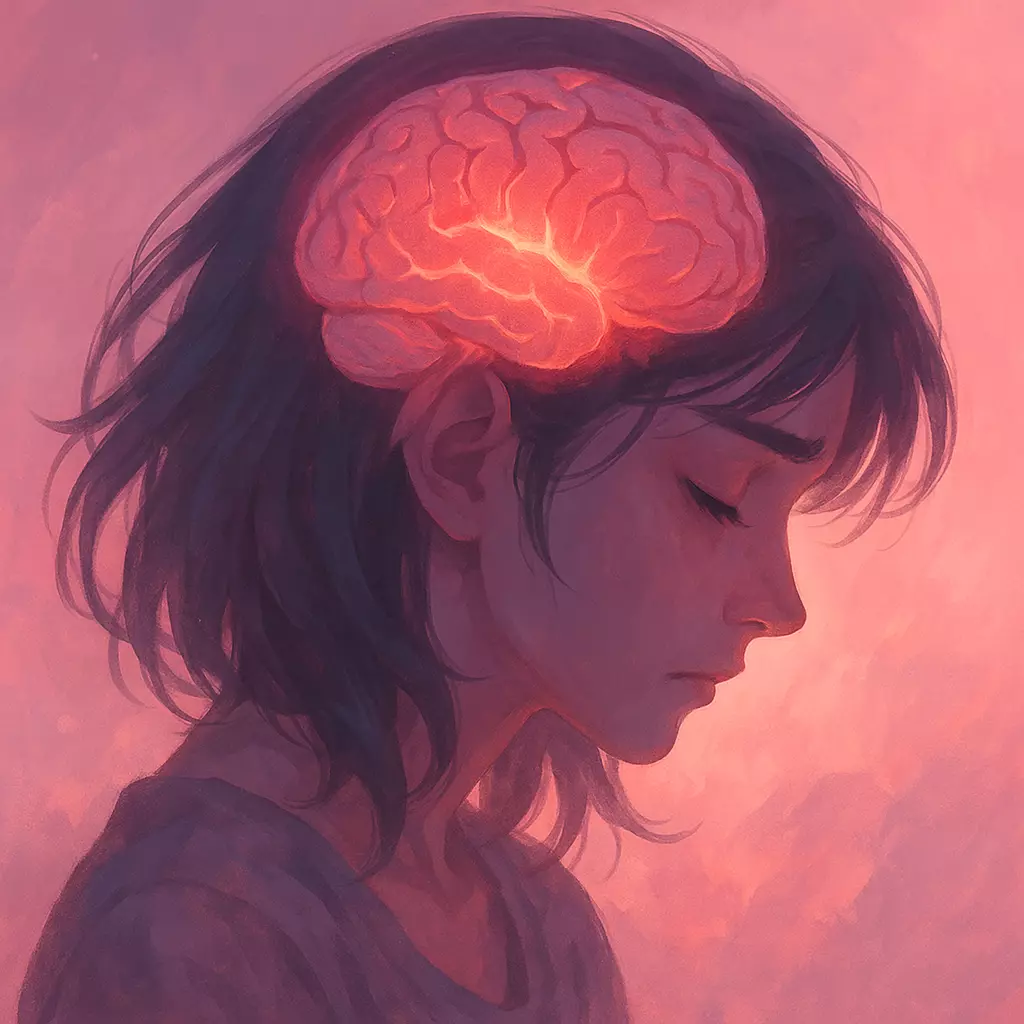
Brain imaging studies confirm this. In one study, researchers scanned people who had recently been rejected by a romantic partner. The scans lit up in the very same areas associated with drug addiction and craving: the ventral tegmental area (VTA) and caudate nucleus. These regions are designed to motivate us toward rewards — like food, safety, or love — and when those rewards are abruptly taken away, the brain panics. It interprets the loss as a threat to survival, triggering a powerful love withdrawal response.
Why We Can’t Stop Thinking About Our Ex
One of the most tormenting parts of heartbreak is the obsessive loop of thoughts. You replay conversations, imagine different outcomes, stalk social media feeds — even though you know it’s unhelpful. This isn’t just a bad habit; it’s a neurochemical compulsion. The same craving circuits that drive addiction fire off in heartbreak, generating intrusive thoughts as your brain searches for ways to reclaim the lost source of pleasure.
In addiction, this is called “drug-seeking behavior.” After a breakup, it’s “ex-seeking behavior.”
Your brain isn’t trying to sabotage you — it’s doing exactly what it’s designed to do: restore balance, repair connection, seek relief. The difference is, in this case, the object of desire is no longer available, which leaves the craving circuits spinning without resolution. Recognizing this as part of love withdrawal can help you replace self-blame with self-compassion.
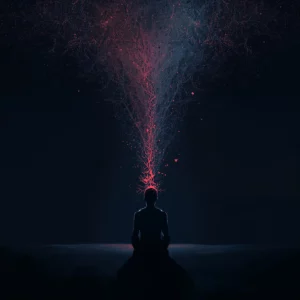
Why Breakups Hurt So Much (Science of Heartbreak & Healing)
Let’s examine breakups in: Biology of love & loss, Attachment styles, Rejection psychology, Closure, Rumination, Grief
Tap here to read more →Love and Addiction: The Same Biological Roots
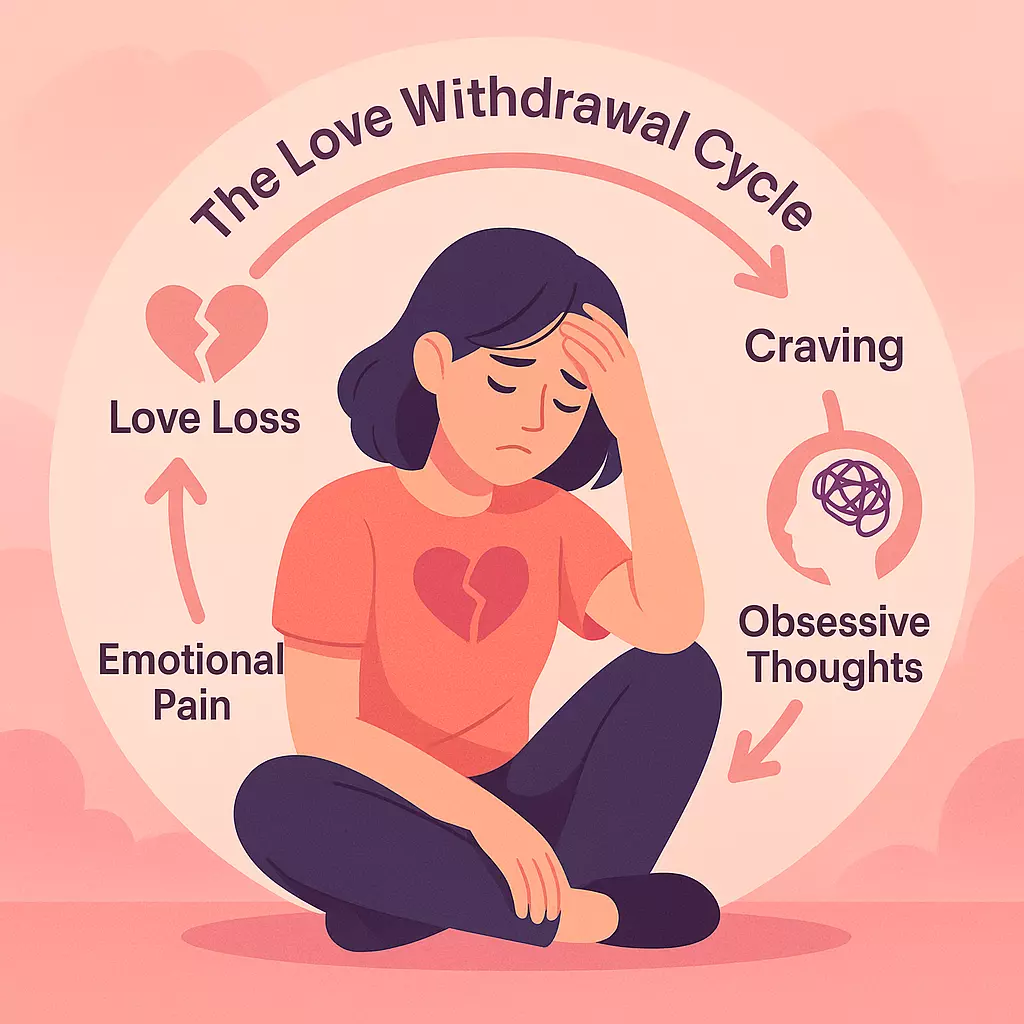
It might sound unsettling to compare love to addiction, but from a biological perspective, the overlap is profound. Love activates dopamine-rich reward circuits, just as drugs do. Sustained love builds deeper bonds through oxytocin, the hormone of trust and attachment. When that bond breaks, the loss is not just emotional — it’s chemical.
The brain experiences the loss as deprivation, and the resulting love withdrawal can be just as intense as quitting any addictive substance.
A Gentle Truth
If you’re in the middle of heartbreak, knowing that your suffering has a biological basis might not erase the pain — but it can make it more bearable. You are not broken. You are not weak. Your brain is navigating an ancient, powerful system designed for connection and safety.
Healing will come, not by forcing yourself to “just move on,” but by patiently allowing your mind and body to recalibrate, much like someone recovering from any profound loss.
The withdrawal will ease. The cravings will fade. And eventually, your brain will build new pathways — ones that no longer revolve around what was lost, but instead gently guide you toward what’s next.
FAQ
Q1. Why does breakup feel like withdrawal?
Breakups trigger a sudden drop in feel-good neurotransmitters (dopamine, oxytocin, serotonin) and a cortisol surge, causing physical and emotional symptoms similar to drug withdrawal, including insomnia, anxiety, and cravings to reconnect.
Q2. How long do withdrawal-like symptoms last after a breakup?
Most people begin adjusting within 6–8 weeks, though intense cravings and stress responses may persist longer depending on factors like relationship length and attachment style.
Q3. What causes obsessive thoughts about an ex after a breakup?
The brain’s craving circuits misfire after loss, replaying memories and prompting obsessive rumination as it attempts to regain the lost emotional reward—similar to ‘drug-seeking behavior’ in withdrawal.
Q4. Can anything ease the physical symptoms of heartbreak?
Yes. Activities like exercise (boosting endorphins), mindfulness (reducing cortisol), social support (raising oxytocin), proper sleep, and no-contact can alleviate distress and help rebalance brain chemistry.
Scientific Sources
-
Erin Rhinehart (2025): Love and the brain: A Q&A with Erin Rhinehart, Professor of Biology
Key Finding: Emotional stress from heartbreak triggers cortisol spikes and dopamine drops—mirroring drug withdrawal, leading to intrusive thoughts, motivation loss, and physical symptoms.
Why Relevant: Direct evidence that losing love engages biology similar to substance withdrawal.
https://www.susqu.edu/1852-love-and-the-brain-a-qampa-with-erin-rhinehart/ -
Fisher et al. (2010): Reward, Addiction, and Emotion Regulation Systems Associated With Rejection in Love
Key Finding: fMRI scans of recently rejected individuals showed activation in addiction-related regions (VTA, caudate), with craving-like responses to ex-partner cues.
Why Relevant: Demonstrates that breakup engages neural circuits identical to those involved in drug cravings.
https://en.wikipedia.org/wiki/Biology_of_romantic_love -
Donatella Marazziti & Domenico Canale (2004): Hormonal changes when falling in love
Key Finding: Falling in love involves surges in dopamine, oxytocin, and cortisol; likewise, breakup causes sudden drops in ‘feel‑good’ hormones and a cortisol rebound.
Why Relevant: Illuminates the hormonal mechanics of ‘withdrawal’ when love ends, underscoring biology-of-loss.
https://en.wikipedia.org/wiki/Biology_of_romantic_love
- The Surprising Science of Rebound Relationship Biology: How Your Brain Heals After Heartbreak
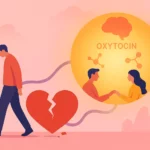
- The Surprising Science of Love Addiction: Why Heartbreak Hurts Like Withdrawal
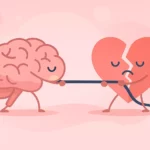
- Heartbreak and Sleep Loss: The Painful Truth Behind Sleepless Nights
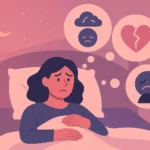
- The Best Supplements for Breakup Recovery: Heal Faster & Feel Stronger
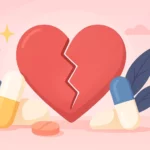
- The Surprising Science of Oxytocin and Breakups: Why Love Hurts So Much
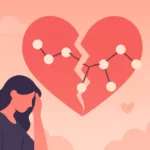
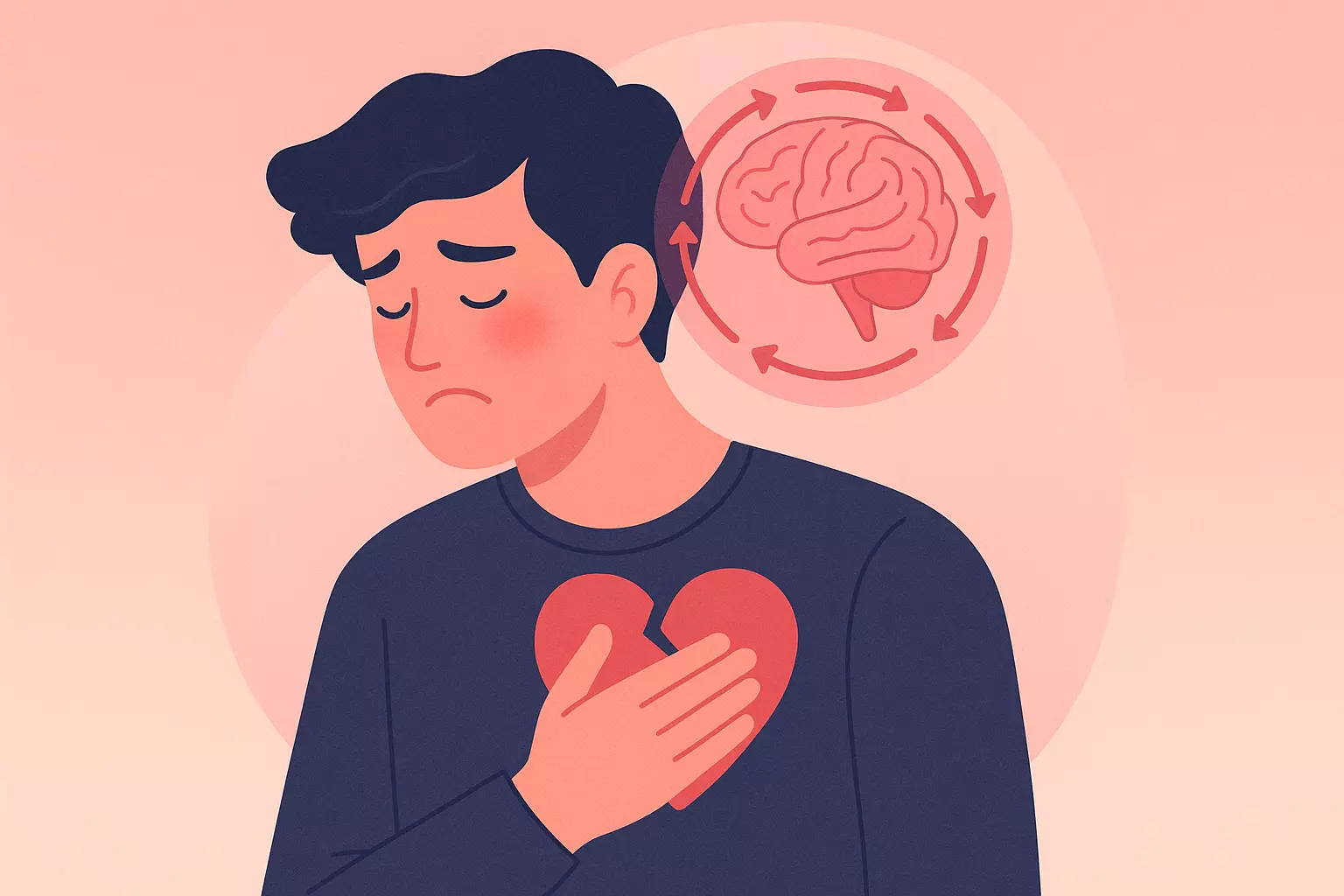
Leave a Reply